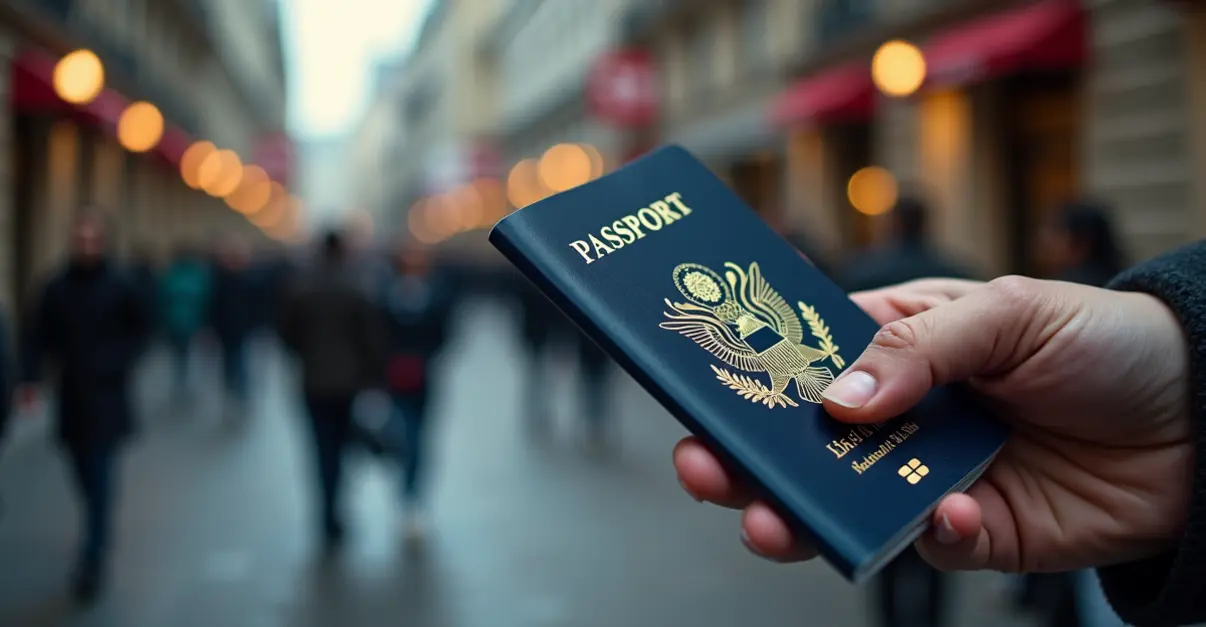US passport drops to 12th place in global rankings, marking first time outside top 10 in 20 years. American travelers now have visa-free access to 180 countries, down from top position in 2014.

American Passport Power Declines Significantly in 2025
In a historic shift that signals changing global dynamics, the United States passport has fallen out of the top 10 most powerful passports worldwide for the first time in the 20-year history of the Henley Passport Index. The American passport now ranks 12th globally, tied with Malaysia, offering visa-free or visa-on-arrival access to 180 of 227 destinations worldwide.
From First to Twelfth in a Decade
This represents a dramatic decline for American passport power. In 2014, the US passport held the coveted number one position alongside the United Kingdom, providing access to 184 countries. The current ranking marks the lowest position ever recorded for the American passport in the index's history. 'This shows a fundamental change in global mobility and soft power,' says Christian Kaelin, chairman of Henley & Partners, the firm that compiles the index. 'Countries that embrace openness and cooperation are gaining ground, while those relying on old privileges are falling behind.'
Key Factors Behind the Decline
Several recent international policy changes have contributed to the US passport's decline. In April 2025, Brazil ended its visa-free program for American citizens, requiring US travelers to obtain visas for the South American nation. China also notably excluded the United States from its expanding list of visa-free countries, despite extending visa-free access to several other nations including Brazil, Argentina, Chile, Peru, and Uruguay.
Additional restrictions from Papua New Guinea, Myanmar, Somalia, and Vietnam have further limited American travel freedom. These changes reflect what experts describe as a growing isolationist trend in US foreign policy. 'The US ranks poorly on the Henley Openness Index at 77th place, allowing only 46 nationalities visa-free entry compared to the 180 destinations its citizens can access,' notes a Henley & Partners spokesperson.
Asian Dominance in Passport Power
While the US declines, Asian nations continue to dominate the top passport rankings. Singapore maintains its position as the world's most powerful passport with visa-free access to 193 countries, followed by South Korea (190 countries) and Japan (189 countries). European passports from Germany, Italy, Luxembourg, Spain, and Switzerland remain strong with broad international access.
The Netherlands ranks in a shared fifth position with Belgium, France, and Austria, offering visa-free access to 187 destinations. 'The shift reflects changing global travel influence and diplomatic relationships,' explains a travel policy analyst. 'Asian passports are gaining prominence while traditional Western powers experience reduced mobility privileges.'
China's Rising Influence
In contrast to the US decline, China continues its steady ascent in passport rankings. From 94th place in 2015, China has climbed to 64th position in the 2025 rankings. This improvement reflects China's active pursuit of greater international engagement and diplomatic outreach. 'China's rising passport power indicates the country's growing global influence and its efforts to build stronger international relationships,' observes an international relations expert.
Impact on American Travelers
The decline in passport power is having tangible effects on American travelers. According to Henley & Partners, applications from US nationals seeking second citizenships have surged by 67% in 2025 compared to the entire previous year. This unprecedented increase suggests growing concern among Americans about their declining travel freedom.
At the bottom of the rankings, Afghanistan remains the world's least powerful passport with access to only 24 visa-free destinations, followed by Syria and Iraq. The gap between the most and least powerful passports continues to widen, reflecting broader global inequalities in mobility rights.
The Henley Passport Index, which analyzes 199 passports and 227 travel destinations based on International Air Transport Association data, serves as a key indicator of global mobility trends and international relations. The latest rankings suggest that countries pursuing open borders and international cooperation are increasingly rewarded with greater travel freedom for their citizens.

 Nederlands
Nederlands
 English
English
 Deutsch
Deutsch
 Français
Français
 Español
Español
 Português
Português









